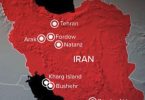Despite the continued unrest in the Middle East reignited by the escalated tension between Israel and Palestine, Egypt’s tourism is expected to grow further this year 2009.
Although bordering Gaza, now a blood-soaked battle zone in the Palestinian Territory, Egypt’s Rafah crossing maintains some order in the midst of the ongoing fighting. After all, Egypt is supposed to act as the peace broker – promoting negotiations between Israel and Palestine. Otherwise, a complete rupture in relations and the abrogation of the peace treaty Egypt is committed to will have severe consequences for its national security if all else fails.
Egyptian Tourism Minister Zoheir Garranah confirmed peace and order on the Arab republic’s border with Gaza. In an interview not so long ago, he stressed solidarity in the Middle East is key in reaching tourism goals despite the crisis.
He gave the eTurbo News this exclusive, updating the industry with the situation on the Gaza border, at the same time, confirming why the tourism outlook in the new year looks positive.
eTN: Since Egypt opened Gaza-Rafah crossing, are tourists and locals safe?
Minister Garranah: There are no tourist sites there. President Mubarak ordered it open only to injured Palestinians.
eTN: How did Egypt tourism do in 2008?
Garranah: Year-to-date growth until November shows an 18 percent increase over last year. This was actually an unanticipated 2.8 percent decrease due to the economic crisis affecting the world. In September, tourism grew by 11 percent. In October, it was 12 percent. Had it not been for the economic situation, we would have continued producing 1.2 million per month. In spite of the crisis, Egypt maintains a healthy growth. By 2010/2011, we plan to reach 14 million arrivals. For 2008, we expect our books to report totals of 12.85 million to 12.9 million visitors.
eTN: In the face of the economic meltdown, which markets travel to Egypt? Why?
Garranah: Russia tops the list, followed by Germany, UK, Italy, Poland, France, Ukraine, Greece, Czech Republic and Holland. The US may not be in the top five, but for the very first time, it would have exceeded the 300,000 visitor number, brought about by people’s perception of Egypt being a safe country. Americans are now aware that the Middle East is such a vast area and that we are quite far from any troubled zones in the region. The media has also contributed to increased visitations from the US.
eTN: Why has Russia become number one for the first time? Is it because the ruble versus pound exchange rate is favorable?
Garranah: The Russian market has experienced excellent economic growth; thus Egypt was good value for money for them. Proximity also plays a major role as the flight is just a mere 3.5 hours. Visa policy has also been eased for them (they can obtain their visa upon arrival at any international airport in Egypt). Furthermore, Egypt is also a year-round destination.
eTN: Isn’t Egypt currently in the winter season – a shoulder or off-peak season?. How can the country be as popular and as hot to tourists? How can you be the sun, sand and sea destination?
Garranah: The shoulder season is when it’s snowing elsewhere during December and the first three weeks of January. Other shoulder season is in June. The rest of the year is just between middle and high or peak. It’s actually the repercussions of the economic crisis, which we’ve felt during the Christmas holidays and the New Year’s, that slowed it down a bit.
eTN: So how do you see 2009 based on the holiday slowdown you’ve been through and the possible impact of the credit crunch?
Garranah: Any anticipation now will only be an educated guess. It’s too early to speculate. We have to monitor the market closely and react accordingly. Anyone who assumes a 30-40 percent decrease will be just making a guess.
eTN: Have locals and foreign visitors traveled less?
Garranah: Our domestic market has not been affected yet. Egyptians travel only during the holiday periods, Easter, long-weekends and other feasts. So far, there’s been no effect as much as the European markets cutting back on their bookings. We can all understand the uncertainty of the future and how people are not taking their vacation if they feel they will not have jobs to return to.
eTN: What occupancies are your hotels running these days and where? Do hotels dump rates to keep numbers up?
Garranah: Year-to-date, in general Egypt’s running 80-85 percent occupancy in the coastal areas of Hurghada and Sharm el Sheikh where we have 70 percent of rooms’ inventory. In Cairo, it was about 80 percent; there, we have a big shortage of rooms. In fact, we need to build more rooms than give out special rates.
eTN: Does Egypt make a cheaper alternative to Dubai for Mid-East travelers? Will trips packaging Egypt with Dubai work well?
Garranah: Not at all. We are not just an alternative. Though Dubai is such a great and attractive destination complementing the region, the diversity and variety of the Egyptian product is incomparable. Combination trips will not work this way unless packages entail religious or historical tours, let alone, packaging Dubai beaches with the Red Sea.
eTN: Has the development of the Mediterranean coast increased momentum despite the crisis?
Garranah: Although we’ve started developing the coast, due to the delay in the master plan which has not been commissioned as yet, we’ve not gone full blast. There are over 20,000 rooms under construction. Despite the areas having been vacant for a long time, the complication in the plan began when local folks moved in. We had to introduce some changes in the land laws to relocate these people as well as compensate them.
eTN: What about your environmental standards on the coast? How has Egypt protected its world-class corals?
Garranah: Compared to any other country, we are much more rigid with environmental planning. We believe that the sustainability of this industry relies on the quality of service/ human resources and the environmental standards. Egypt has large numbers of people diving in the same coral dive sites. The ‘carrying’ capacity for those reefs is not ready for very large groups. Hence, we’ve ordered a study to identify the ideal number for our corals. It will be ready in 3 months to be followed by new regulations for diving to protect our coral reefs.
eTN: Will there be new tourist transportation laws in place following the recent bus crash that led to the death of Russian guests (about 48) in Sinai? Has your Russian market been discouraged by that accident?
Garranah: Due to what happened some couple of days ago, we’ve put up new measures to protect our guests traveling by road, including more stringent speed limits capping the speeds to 100 kph. We have mobile units checking the technical parts of the buses and the licenses of the drivers. We’re also putting up a driving institute that will look after accrediting bus drivers in Egypt.
Definitely any crisis will have a negative impact. However, we’re doing our utmost best to prevent similar situations. There’s no way one can eliminate accidents around the world. Hopefully, we will succeed in our endeavor.
eTN: It seems your term has been ‘blessed’ with no major terror incident. What do you do to secure tourists and the industry itself?
Garranah: I disagree with you with saying my term’s been blessed. I really feel sorry for countries exposed to attacks. I wish no one will experience events such as that. But we take safety and security very seriously in Egypt. We will continue to protect our visitors with the highest possible precautionary standards.
And though the credit situation has taken its toll worldwide including in some of Egypt’s new resort real estate developments, over 120,000 rooms have been added per year since Garranah was appointed in 2006. Tourism is one of the pillars of Egypt’s economy. The government has targeted, upon his appointment, an additional 50,000 new rooms and 1 million new visitors every year, creating 200,000 new jobs yearly. Despite both geopolitical and economic crises affecting the region, Egypt’s tourism minister is definitely on track.






















